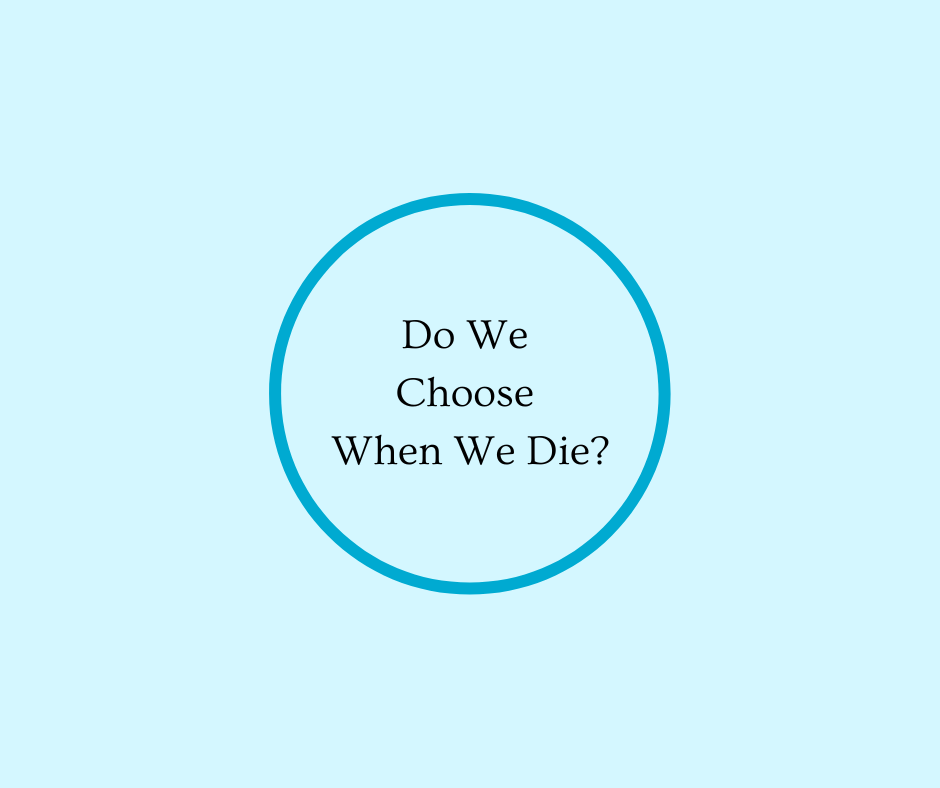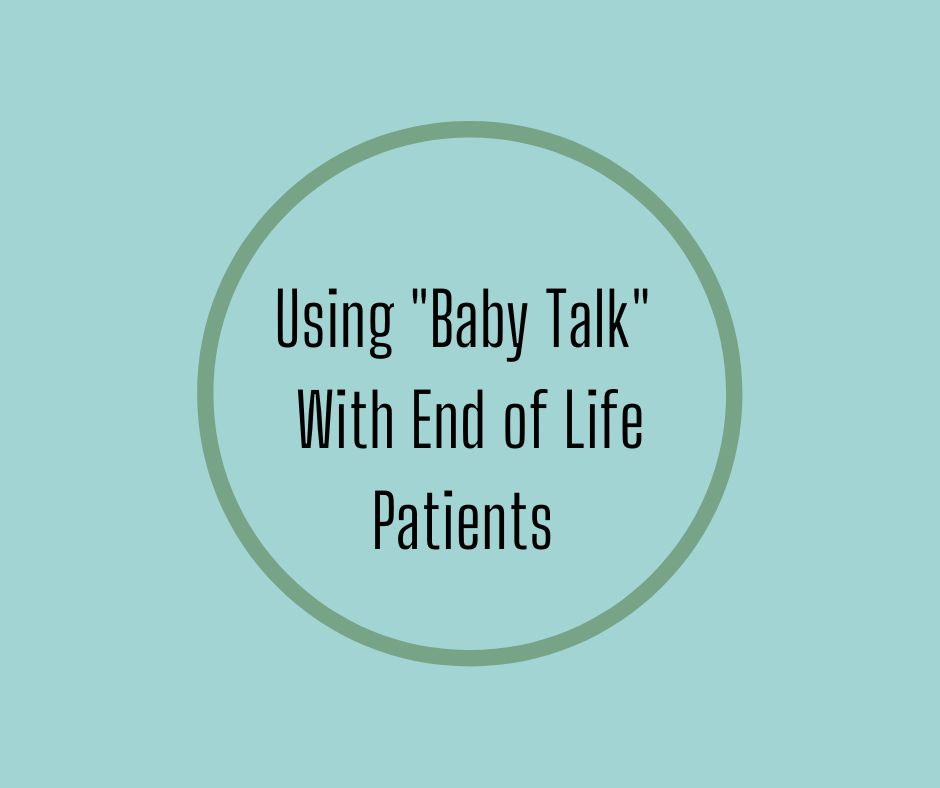Dementia causing illnesses, by whatever name we classify them, are becoming more and more prominent. Dementia, and how to care for people with it, has become a big healthcare issue.
Dear Barbara, my mother has FTD dementia. She is very vacant and stares through us all. She is unable to communicate, her muscles are contracting. She is eating and drinking less. We have been told she is now in advanced stages. I feel she may be waiting to come home from the hospital where she is again. We do think she still recognizes us. The hospital seems to think otherwise!
Dementia doesn’t play by the rules for end of life. Withdrawing and sleeping can be present for years and does not signify approaching death. Not eating and not swallowing are your key signs. If we don’t eat, we can’t continue to live. Always offer food (be careful of choking), but don’t force food.
About how much your mother knows: obviously I don’t know for sure, but I always operate with the belief "what if some part of them knows.”
I recommend talking to the person as if they understand. Share comings and goings, thoughts of love and thoughts of regret. Say what your heart needs to say. I believe some part hears and knows.
Do I think she wants to come home? Yes, most people don't want to be in a hospital. We want to be at home and with our loved ones.
However, I do have a concern for you. Taking care of someone that requires 24/7 care is a huge responsibility. As a caregiver it is not only physically exhausting but emotionally draining. What kind of support system do you have in place for you should you decide to bring her home?
Something More about... Is Mom Waiting to Come Home? FTD Dementia
Caring for a special person in your home who is facing end of life can be overwhelming. Having tools that will support you is vital. My guidebook, By Your Side, A Guide for Caring for the Dying at Home addresses end of life choices (life sustaining, comfort care), advance directives, and funeral planning. It details signs of approaching death (what to look for, what to do); describes end of life care at home; pain management; care of dementia patients at end of life; and, very importantly, how to take care of yourself as you fulfill your role as caregiver.








7 comments
sarah
FTD is what my 75yr old father is having to go through,It is indeed sad but at least we have a good laugh always. Noticed songs bring him to his senses somehow .Is there a cure?
———
BK Books replied:
Hi Sarah, I’m sorry, to my knowledge there is no cure for FTD. Blessings to you and your father. Barbara
FTD is what my 75yr old father is having to go through,It is indeed sad but at least we have a good laugh always. Noticed songs bring him to his senses somehow .Is there a cure?
———
BK Books replied:
Hi Sarah, I’m sorry, to my knowledge there is no cure for FTD. Blessings to you and your father. Barbara
Elizabeth Winders
Barbara, I always remember the most wonderful story from a friend. My friend was an administrator in a nursing home where her mother had been a resident for some time. The mother no longer recognized her but was conversant. Each day before she left work, she would stop and visit with her mother for a bit. On one day, her mother was sleeping. My friend bent over and gave her mother a gentle kiss on her cheek. The mother woke up, looked her in the eyes and addressed her my name and said, “I was having the most wonderful dream, I was dancing with your dad.”
We just never know what is happening in that mind behind the veil.
———
BK Books replied:
Elizabeth, thank you so much for the lovely story of your friend and her interaction with her mother. “We just never know what is happening in that mind behind the veil” is beautifully said. Thank you and blessings to you. Barbara
Barbara, I always remember the most wonderful story from a friend. My friend was an administrator in a nursing home where her mother had been a resident for some time. The mother no longer recognized her but was conversant. Each day before she left work, she would stop and visit with her mother for a bit. On one day, her mother was sleeping. My friend bent over and gave her mother a gentle kiss on her cheek. The mother woke up, looked her in the eyes and addressed her my name and said, “I was having the most wonderful dream, I was dancing with your dad.”
We just never know what is happening in that mind behind the veil.
———
BK Books replied:
Elizabeth, thank you so much for the lovely story of your friend and her interaction with her mother. “We just never know what is happening in that mind behind the veil” is beautifully said. Thank you and blessings to you. Barbara
Carol Littleton
I have followed you for many years as a retired hospice nurse. You have been extremely wise and helpful
———
BK Books replied:
Hi Carol, thank you for your kind words about my work. Blessings! Barbara
I have followed you for many years as a retired hospice nurse. You have been extremely wise and helpful
———
BK Books replied:
Hi Carol, thank you for your kind words about my work. Blessings! Barbara
Terrie Nighswonger Wright
What is FTD dementia?
Just asking?
———
BK Books replied:
Hi Terrie, thank you for asking for a definition of FTD. I should have explained. FTD is Frontal and Temporal Disorder, sometimes called Frontal and Temporal Dementia. It is damage to the neurons in the frontal and temporal lobes of the brain. This often results in dementia. Blessings! Barbara
What is FTD dementia?
Just asking?
———
BK Books replied:
Hi Terrie, thank you for asking for a definition of FTD. I should have explained. FTD is Frontal and Temporal Disorder, sometimes called Frontal and Temporal Dementia. It is damage to the neurons in the frontal and temporal lobes of the brain. This often results in dementia. Blessings! Barbara
Sydney
FTD is a distinct organic brain disease- it is NOT Alzheimer’s. That is a problem because even medical professionals know little to nothing about it. Cared for my husband for 5 years until his death- such a nasty, cruel disease. It changed me & have still not recovered from all of it. I focused on maintaining his dignity and quality of life. Did things daily that brought forth a smile from him- some joy. He could not speak but he knew me to the end. Sure of that- not even that dreadful disease could break our forever bond. God was merciful when He called him home. God bless you in caring for your mother.
———
BK Books replied:
Hi Sydney, To say caring for someone with dementia, no matter how it is named, is challenging, doesn’t begin to define the physical, emotional, mental and even spiritual energy it takes to live through it. I understand if it has changed you forever. Now your new challenge is to live the best life you can. Let that be the tribute of the love you have for him. Blessings! Barbara
FTD is a distinct organic brain disease- it is NOT Alzheimer’s. That is a problem because even medical professionals know little to nothing about it. Cared for my husband for 5 years until his death- such a nasty, cruel disease. It changed me & have still not recovered from all of it. I focused on maintaining his dignity and quality of life. Did things daily that brought forth a smile from him- some joy. He could not speak but he knew me to the end. Sure of that- not even that dreadful disease could break our forever bond. God was merciful when He called him home. God bless you in caring for your mother.
———
BK Books replied:
Hi Sydney, To say caring for someone with dementia, no matter how it is named, is challenging, doesn’t begin to define the physical, emotional, mental and even spiritual energy it takes to live through it. I understand if it has changed you forever. Now your new challenge is to live the best life you can. Let that be the tribute of the love you have for him. Blessings! Barbara
Crispin
And getting hospice care as soon as possible even if she cannot be moved home.
———
BK Books replied:
Thank you Crispin. If a person is appropriate for hospice care by all means get the help hospice offers. BUT know it is challenging to determine when a person is appropriate for hospice. It really isn’t until they aren’t taking in enough calories for body maintenance that you can determine they have actually entered the dying process. Read How Do I Know You for more information on dementia at end of life. Blessings! Barbara
And getting hospice care as soon as possible even if she cannot be moved home.
———
BK Books replied:
Thank you Crispin. If a person is appropriate for hospice care by all means get the help hospice offers. BUT know it is challenging to determine when a person is appropriate for hospice. It really isn’t until they aren’t taking in enough calories for body maintenance that you can determine they have actually entered the dying process. Read How Do I Know You for more information on dementia at end of life. Blessings! Barbara
Carol Sherblom
Can I get a copy or two from you? I have much to learn. Thank you. Carol
———
BK Books replied:
Hi Carol, go to my website https://bkbooks.com/ and you will find all of my materials, (booklets, books and DVDs). There is a booklet on dementia along with others on end of life. Blessings! Barbara
Can I get a copy or two from you? I have much to learn. Thank you. Carol
———
BK Books replied:
Hi Carol, go to my website https://bkbooks.com/ and you will find all of my materials, (booklets, books and DVDs). There is a booklet on dementia along with others on end of life. Blessings! Barbara